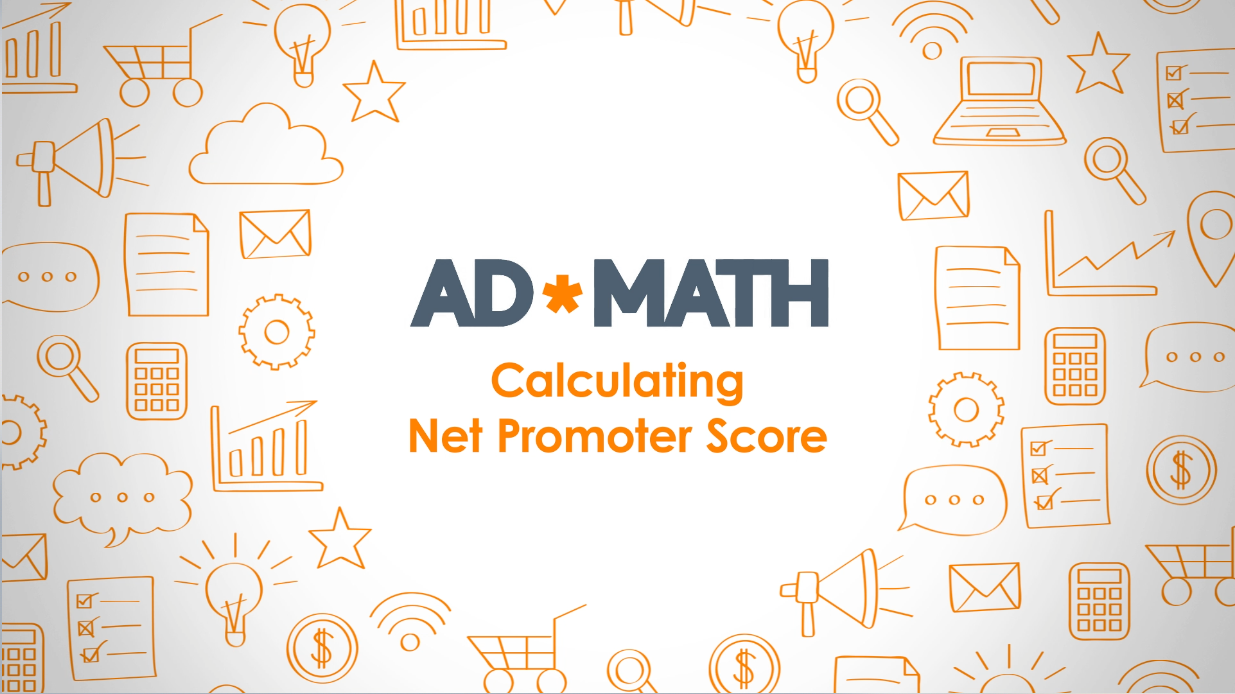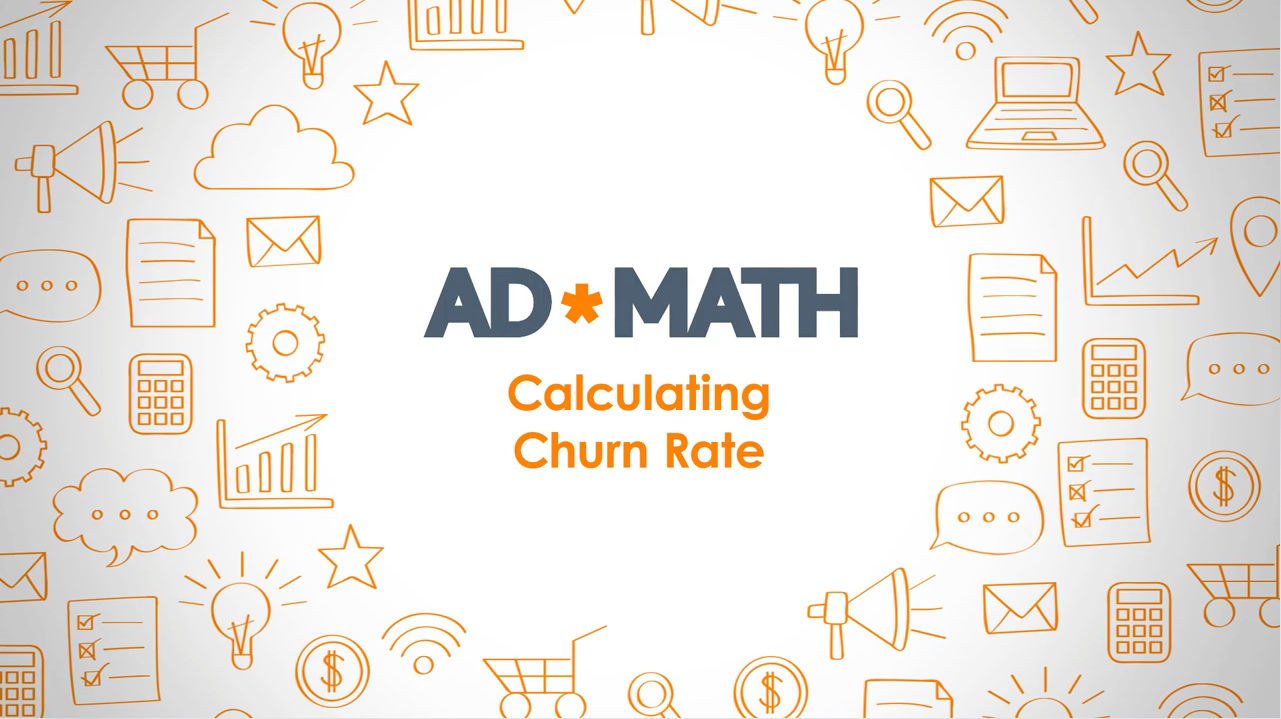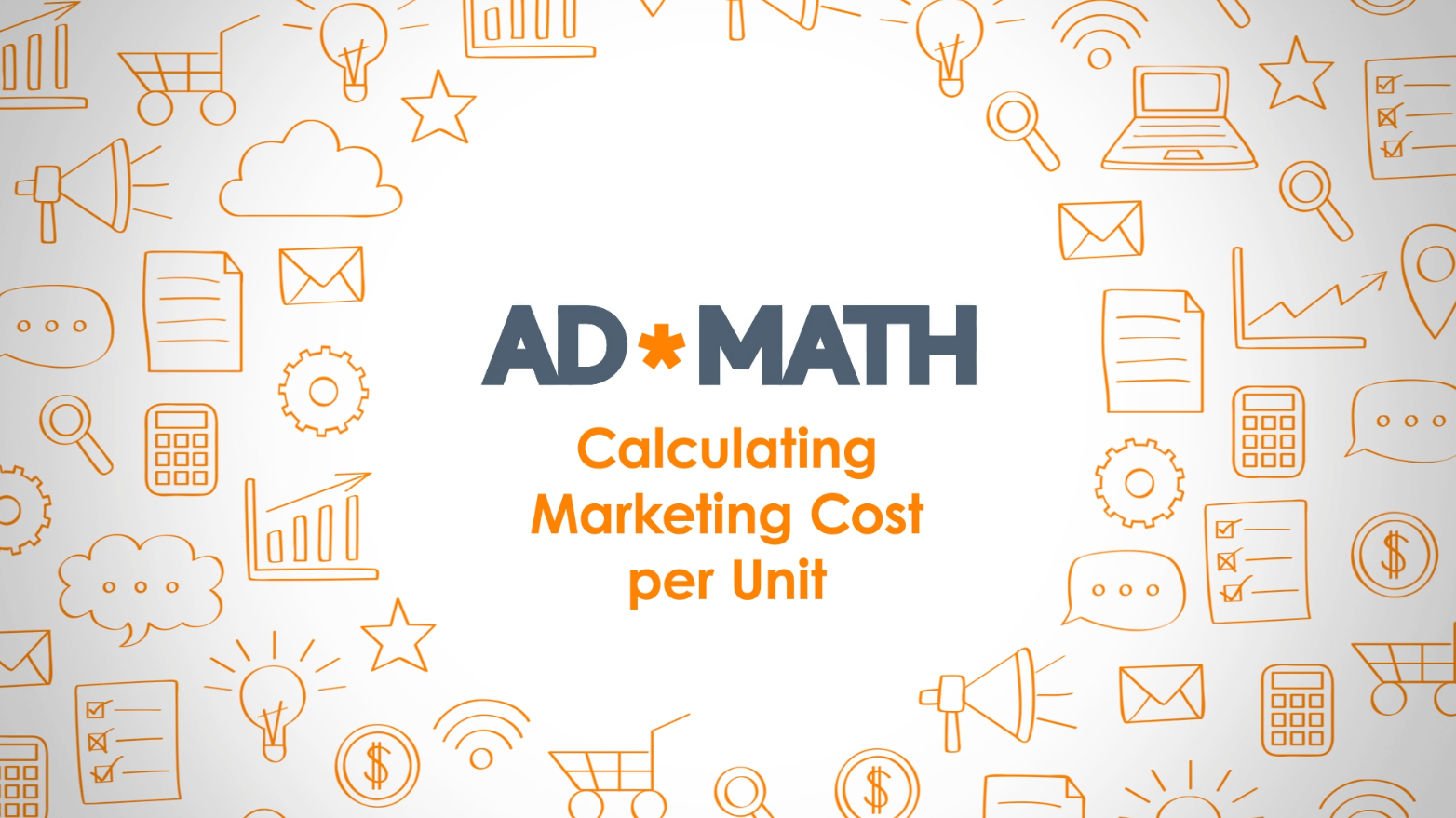How to Calculate Customer Churn Rate
In marketing, we spend a lot of time trying to attract new customers, but it’s also important to know how many customers you may be losing. So, in...

In this Ad Math video, we discuss how to calculate your Net Promoter Score.
Created by Bain & Company, the Net Promoter Score (NPS), is used as a quick and simple way to measure customer satisfaction. Your NPS score is based on one question, asked on a 0-10 scale (with 10 being 'very likely'): How likely is it that you would recommend our brand/product/service to a friend or colleague?
Responses to this question are then grouped into three categories:

You then calculate your NPS score by subtracting the percentage of Detractors from the percentage of Promoters. Since we're subtracting a percentage from another percentage, your resulting Net Promoter Score score will range from negative 100 to positive 100. However, your net promoter score should be shown as a whole number and not a percentage.
The best way to get value from your Net Promoter Score is to track it regularly - either quarterly, twice a year, or annually. You may also want to consider having separate NPS scores for each business unit, product, customer segments, or region to best isolate what's working for you, and where you need to focus your attention moving forward.
For the customer, it’s a quick and easy survey, taking a few seconds vs. other surveys that take 20 minutes or more. For the brand, it's an opportunity to put an action plan in place to increase your promoters and reduce your detractors.
So now that you know about NPS scores, please consider being a promoter of Mighty Roar by giving this video a quick like, and don’t forget to subscribe to our channel so you’re notified as new videos are posted. Lastly, if you have some Ad Math that you'd like us to dive into on an upcoming video, please let us know and it may be the topic of our next video.
In this video, we are gonna discuss how to calculate net promoter scores. Created by Bain & Company, the net promoter score or NPS is used to measure customer satisfaction.
Your NPS score is based on one question on a zero to 10 scale. How likely is it you would recommend our brand, product, or service to a friend or colleague? Responses to this question are then grouped into three categories.
First, promoters, people who score you from nine to 10. These are your best customers. They are most probably apt for cross-selling, up-selling, loyalty programs.
And then there's the passives, sevens, and eights. These are customers that are good but they're just really not that loyal and if given the right offer they could abandon ship and go to a competitor.
And then there are detractors. This is the biggest segment within this group and it's zero to six. So detractors are people who either don't care much about your brand, or they're unsatisfied customers.
You then calculate your NPS score by subtracting the percentage of detractors from the percentage of promoters, and the result is an NPS score that can range between negative 100 and positive 100.
So, if we were to look at an example of that. Let's say that we send a survey to 100 people, just to make the math a little easy. 55 of those came back as detractors, 25 came back as passives, and 20 of them were promoters. So, if we were to do the math on this, we take the 20% of promoters, we subtract the 55% of detractors, and you get an NPS of negative 35.
So, anything below zero isn't that great, obviously, but if you really want to see where you stand, it's best to compare to industry benchmarks, or even if you have the ability to look at what competitors are and then see how you're doing. And the best way to get value from the net promoter score is to track it regularly.
You may also want to consider having separate NPS scores for each business unit, product, customer segment, or region, in order to isolate what's really working and where you should focus your attention.
For the customer it's a quick and easy survey, taking just a few seconds, versus other surveys that could take 10, 20 minutes or more. And for the brand it's an opportunity to put an action plan in place to increase your promoters and reduce your detractors.
So now that you know about NPS scores, please consider being a promoter of our channel by giving this video a quick like. I see what you did there. And if you have some ad math that you'd like us to dive into in an upcoming video, let us know by adding it in the comments.
Sign up for our monthly newsletter to receive updates.

In marketing, we spend a lot of time trying to attract new customers, but it’s also important to know how many customers you may be losing. So, in...

When you don't have deep pockets, every dollar in your marketing budget counts and you need to allocate your money as effectively as possible. That's...

A critical task in planning your marketing is to identify growth opportunities. These usually come in the form of financial performance and market...